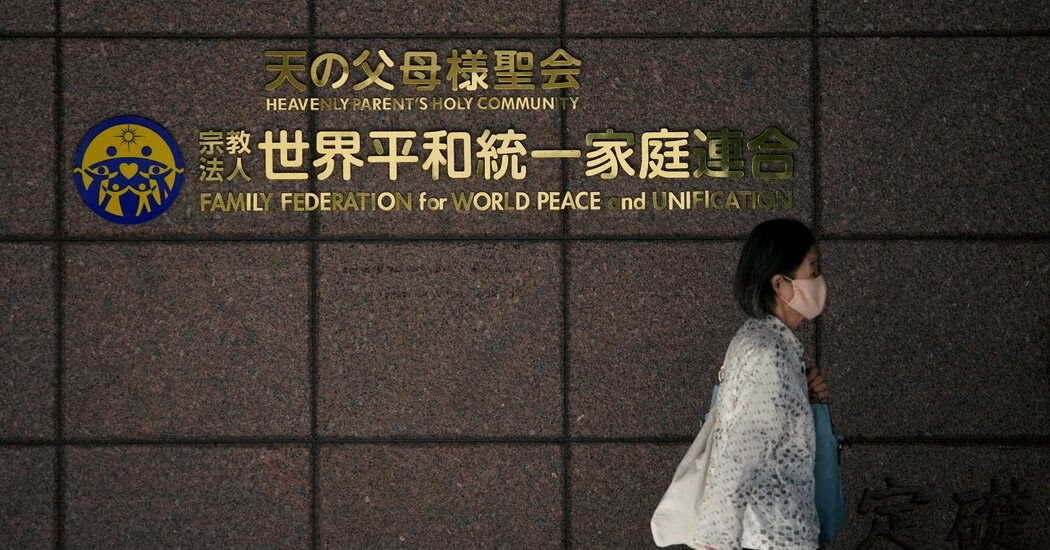A Tokyo court has ruled that the Japanese branch of the Unification Church must dissolve, three years after the assassination of former Prime Minister Shinzo Abe brought attention to the church’s activities.
The shooting of Mr. Abe by someone who held a grudge against the church exposed that the church had pushed members into financial difficulties to fund donations to conservative politicians.
Courts don’t usually order dissolutions of groups for breaking laws, but in this case, it agreed with the government’s request to revoke the church’s legal status, citing violations of laws on religious activities. The education ministry had requested the dissolution of the church after determining that it was forcing members to donate and purchase religious items.
The education ministry gathered testimonies from approximately 1,550 former members who reported suffering damages worth 20.4 billion yen, approximately $140 million. The church, known for its mass weddings, was founded in South Korea by the late Reverend Sun Myung Moon, and has branches in numerous countries.
Since Mr. Abe’s assassination during a campaign speech, the church has been under scrutiny. The suspect claimed that the church had financially ruined his family by forcing his mother to hand over her life savings.
Tetsuya Yamagami, who confessed to the shooting in July 2022 and is awaiting trial, blamed Mr. Abe for supporting the church.
Following the assassination, conservative lawmakers hurried to distance themselves from the church, known for its significant political contributions.
When its governing body conducted an audit, the Liberal Democratic Party found that nearly half of its lawmakers had either received contributions from the church or attended events it organized. However, the party’s leadership emphasizes that they have no official ties to the religious group.
With the court’s decision, the government’s focus will now shift to “providing as much support as possible to the victims,” as stated by government spokesman Yoshimasa Hayashi.
Reports indicate that the church, which claimed around 600,000 members in Japan, possesses assets valued at approximately 110 billion yen. A court-appointed liquidator will likely confiscate some of these assets for compensating former members.
In a statement, the church, which was renamed in 2015 to the Family Federation for World Peace and Unification, expressed its intention to appeal the decision. It asserts that members’ human rights have been violated and that “inaccurate perceptions” of the church have spread in the media and on social media.
Japan has disbanded two other religious organizations in recent years, including Aum Shinrikyo, a doomsday cult responsible for a sarin gas attack on the Tokyo subway in 1995. The group’s dissolution was ordered a year later.
The Unification Church has faced backlash from former members in the past. In 2009, it pledged to enhance its compliance with laws governing religious conduct. However, the court mentioned that the church showed no signs of improving and cited its failure to do so as a reason for its dissolution.
With regards to the court’s decision, Chief Judge Kenya Suzuki stated, “We cannot expect improvements from the group given its history of non-compliance and we cannot ignore the ongoing situation.”
An expert on new religions suggests that the full extent of the hardships caused by the church is still not known, as many former members are hesitant to come forward, fearing reprisals against themselves or their families.
According to Hotaka Tsukada, a Bunkyo University professor specializing in religion in society, “The testimonies gathered by the education ministry are only the beginning. Many still can’t speak out.”
Source: https://www.nytimes.com/2025/03/25/world/asia/japanese-court-church-disband.html





